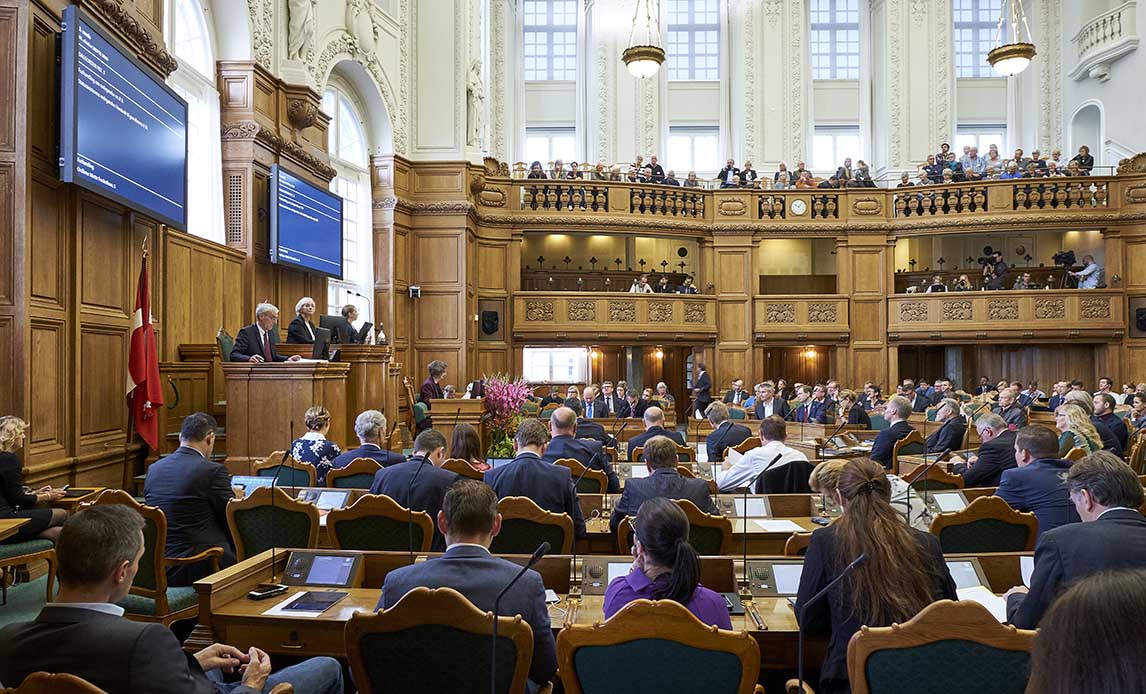News
The political decision making process
It is the Danish Government, with the involvement of the Danish Parliament, Folketinget, that decides whether to deploy Danish forces to international operations.

The Danish Parliament. Photo: Christoffer Regild.
International operations and Danish participation
Military contributions are an essential part of an active Danish foreign and security policy. Military contributions can be deployed to contribute to the prevention of conflicts, war and the fight against terrorist organisations, thereby helping to contribute to Denmark’s security.
Denmark's current international engagement mainly consists of troop contributions to the Baltic States and Iraq.
Denmark also contributes with staff officers and military observers within the framework of the UN. In addition, there are also several smaller contributions to NATO and other coalitions.
The decision making process for military engagement
Over the past decades, Denmark has continuously deployed military forces to various operations worldwide.
The Danish Government, with the involvement of the Danish Parliament, decides whether to deploy Danish forces to international operations.
Article 19 of the Danish Constitutional Act, Grundloven, sets the framework for the decision to deploy military forces. It is stated in Article 19 that the Government cannot deploy Danish forces to an operation where they possibly must use force against foreign states without the consent of the Parliament. In practice, the consent of the Parliament is usually obtained where Danish forces are to use force to carry out their tasks.
The consent of the Parliament is obtained by a parliamentary bill. For other deployments of Danish troops, the Government may involve the Foreign Affairs Committee.
Background to the decision
The decision to deploy military forces is typically based on a military recommendation from the Danish Defence and a threat assessment of the area of deployment composed by the Danish Defence Intelligence Service.
For instance, the Danish Defence assesses whether the necessary resources, including personnel and equipment, are available to carry out the specific task. Furthermore, the Danish Defence also makes a recommendation on the composition of a possible force contribution.